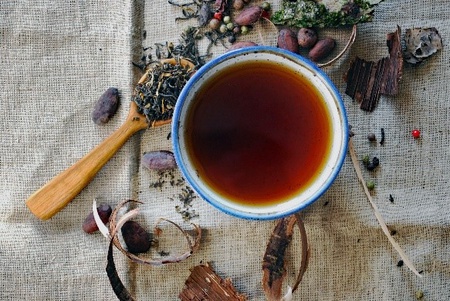Have you ever wondered how products achieve the right to include certified health claims on their packaging? Traditionally products or supplements that claim certain health benefits are assessed by the European Food Safety Authority (EFSA). EFSA rigorously investigate health claims to ensure products are safe and are marketed accurately. They conduct independent research to ensure the claims are realistic. An example of a successful claim lies in your trusty bowl of Scottish oats. If you look at the packaging, you'll probably find the phrase 'helps lower cholesterol'. This claim comes from the approval of an active ingredient in oats (beta-glucan) responsible for reducing and maintaining low cholesterol. However, it is unlikely the product appearing on your social media feeds has been assessed through EFSA for their roles in preventing or curing COVID-19. Quite simply, because COVID-19 is a recent discovery, claims are yet to be assessed in an evidence-based manner. Therefore, it is important to be wary of products branding potentially false claims. Companies often use a loophole to get around health claims, by not referring to COVID-19 specifically in their marketing. However, it is unethical to compare the common flu to COVID-19 because they are not the same virus and may behave differently in response to food products and supplements.
What's the fuss about ‘immune-boosting'? To date, there is little scientific evidence foods or ingredients have immune-boosting properties. The idea the immune system is 'enhanced' is equivalent to a rechargeable battery. You can recharge the battery, but you can't charge the battery beyond its power capacity. Having an optimal immune system is important but taking pills upon pills of vitamins and supplements will not 'boost' your immune system beyond capacity. The nutrients required for a healthy immune system can be obtained from a daily intake of whole fruits and vegetables which are packed with vitamins, minerals and fibre.
Some supplements could be useful at this moment in time. For example, it is recommended everyone over 5 years old in the UK considers vitamin D supplements from October until April, as we do not receive sufficient UV radiation over these months to produce vitamin D through our skin. This increases reliance on dietary forms of vitamin D which are scarce in a typical western diet. We do have some body stores of vitamin D to cope in winter, but it isn't advisable to rely on these residuals alone. The advice is based on years of scientist-led reviews and unrelated to COVID-19. Currently, no scientific evidence has investigated the role of vitamin D in preventing COVID-19. Again, many products claim vitamin D aids immunity in a general sense which has some truth behind it, but its role in COVID-19 prevention is not yet known.
Evidence based health claims often take years of unbiased scientific investigation before they are approved, in contrast products marketed to protect against COVID-19 have very little evidence supporting them, because the virus is so new. More information on nutrition advice for coronavirus can be found at the Association of UK Dietitians website: https://www.bda.uk.com/resource/covid-19-corona-virus-advice-for-the-general-public.html
Resources:
- BDA. 2020. COVID-19/ Coronavirus - Advice for the General Public [Online]. Brimingham, UK: The Association of UK Dietitians. Available: https://www.bda.uk.com/resource/covid-19-corona-virus-advice-for-the-general-public.html [Accessed 16/04/2020 2020].
- BNF. 2018. New advice on vitamin D [Online]. British Nutrition Foundation. Available: https://www.nutrition.org.uk/nutritioninthenews/new-reports/983-newvitamind.html [Accessed 17/04/2020 2020].
- EFSA. 2020a. EU Register on nutrition and health claims [Online]. Belgium: European Commission of Health and Food Safety. Available: https://ec.europa.eu/food/safety/labelling_nutrition/claims/register/public/?event=search [Accessed 16/04/2020 2020].
- EFSA. 2020b. Food Supplements [Online]. European Food and Safety Authority Available: https://www.efsa.europa.eu/en/topics/topic/food-supplements [Accessed 16/04/2020 2020].
- EUFIC. 2020. @EUFIC [Online]. European Food Information Council. Available: https://twitter.com/EUFIC [Accessed 16/04/2020 2020].
Photo credits: Images by Artists from unsplash.com. European Food Standards Agency (logo).


